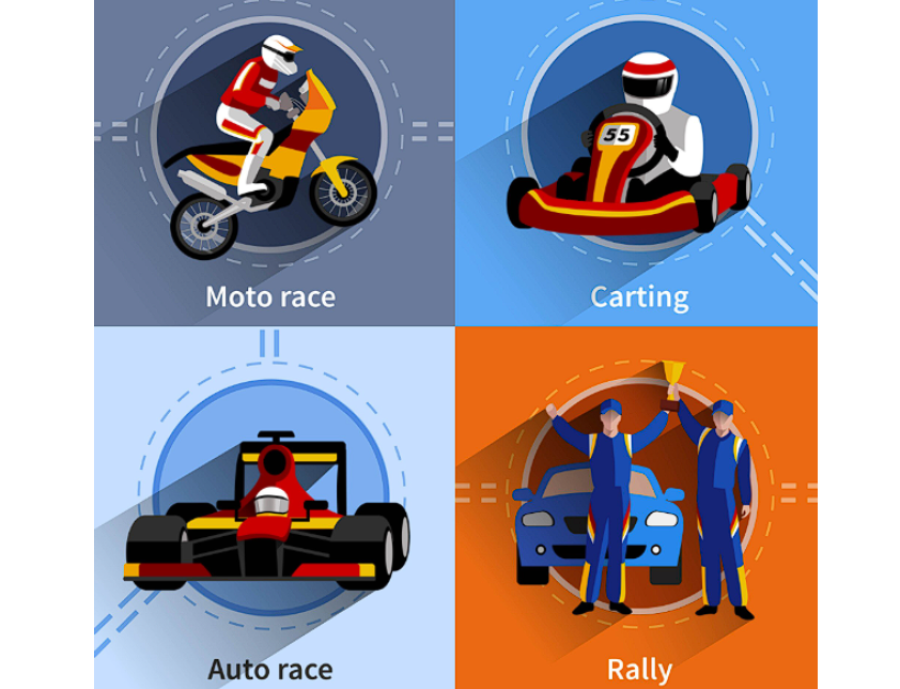The entertainment landscape has undergone
a dramatic transformation over the past decade, driven by rapid technological
advancements. From immersive virtual reality experiences to instant-access
online games, digital entertainment has become a cornerstone of modern leisure.
In an era defined by innovation, these technologies are not only changing how
we have fun but also reshaping societal trends, economic models, and individual
lifestyles. This article explores the evolution of digital entertainment,
focusing on how cutting-edge platforms are reshaping leisure in the digital
age.
Digital entertainment encompasses a wide
range of activities, from streaming movies to engaging in interactive games.
What sets it apart from traditional forms of leisure is its accessibility,
interactivity, and ability to adapt to user preferences. With the proliferation
of smartphones, high-speed internet, and cloud computing, people can now access
entertainment at any time, from anywhere. This shift has democratized leisure,
making it more inclusive and personalized than ever before.
A prime example of this trend is the
online platform balloon game earn money. This game combines
simple mechanics with strategic gameplay, offering an engaging experience that
appeals to a broad audience. It illustrates how digital platforms are
leveraging technology to create innovative forms of entertainment that fit
seamlessly into modern lifestyles. Let’s explore the key drivers behind this evolution
and their implications for the future of leisure.
The Technological
Foundations of Digital Entertainment
The rise of digital entertainment is
deeply rooted in technological advancements that have made interactive
experiences more accessible and engaging. These innovations are the backbone of
the modern leisure industry.
The Role of Connectivity
High-speed internet and the rollout of 5G
networks have been game-changers for digital entertainment. According to a 2024
report by Ericsson, global 5G subscriptions are expected to reach 5.6 billion
by 2029, enabling faster and more reliable connections. This enhanced
connectivity supports seamless online gaming, streaming, and real-time
interactions, creating a smoother user experience.
For digital platforms, this means the
ability to deliver high-quality content without lag, making games and other
interactive experiences more immersive. The impact of connectivity extends
beyond technical performance, fostering global communities where users can
connect and compete across borders.
Cloud Computing and Scalability
Cloud computing has revolutionized the
delivery of digital entertainment, allowing platforms to scale efficiently and
reduce barriers to entry. By hosting games and applications in the cloud,
developers can offer instant access without requiring users to download large
files or invest in expensive hardware.
This technology has been particularly
transformative for casual gaming, enabling players to jump into games directly
through web browsers or mobile apps. The scalability of cloud-based platforms
ensures that they can handle millions of users simultaneously, supporting the
growing demand for digital leisure.
The Appeal of Online
Gaming in Digital Entertainment
Online gaming has become a dominant force
in digital entertainment, driven by its accessibility, variety, and ability to
engage users in unique and immersive ways. Its evolution reflects broader
trends in technology and consumer behavior.
Accessibility and Inclusivity
Online games, particularly casual ones,
are designed to be inclusive, appealing to players of all ages and skill
levels. Unlike traditional gaming, which often requires specialized equipment,
online games can be played on smartphones, tablets, or laptops. According to
Statista, the global online gaming market is projected to generate $32 billion
in revenue by 2025, with casual games playing a significant role in this
growth.
The low barrier to entry makes online
gaming a universal form of entertainment, attracting diverse audiences who may
not identify as traditional gamers. This inclusivity is a key factor in its
widespread adoption.
Interactive and Social Experiences
Online gaming is not just about playing;
it’s about connecting with others. Many platforms incorporate social features,
such as multiplayer modes, chat functions, and leaderboards, that foster a
sense of community. These elements make gaming a shared experience, even in a
digital environment.
The social aspect is amplified by
integration with social media, where players can share achievements or invite
friends to join. This connectivity has turned online gaming into a cultural
phenomenon, bridging gaps between individuals and communities worldwide.
The Impact of Digital
Entertainment on Society
Digital entertainment, particularly
online gaming, is reshaping societal norms, economic opportunities, and
individual behaviors. Its influence extends far beyond the screen, touching
various aspects of modern life.
Transforming Leisure Habits
Digital entertainment has redefined how
people spend their free time, offering instant access to a wide range of
activities. Online games, in particular, provide a quick and engaging way to
unwind, fitting into the fragmented schedules of modern life. A 2023 study by
Deloitte found that 68% of adults engage in some form of digital entertainment
daily, with gaming being the most popular activity among them.
This shift has made leisure more
flexible, allowing people to tailor their entertainment to their preferences
and availability. Whether it’s a five-minute game or an hour-long session,
digital platforms cater to a wide range of needs.
Economic and Cultural Implications
The digital entertainment industry is a
significant economic driver, creating jobs in game development, content
creation, and technology infrastructure. It has also given rise to new cultural
trends, such as the rise of gaming influencers and the mainstreaming of
esports.
Economically, the industry generates
billions in revenue through in-game purchases, subscriptions, and advertising.
Culturally, it fosters global connections, with players from different
backgrounds sharing experiences and ideas through digital platforms.
Challenges and
Opportunities in Digital Entertainment
As digital entertainment continues to
evolve, it faces challenges that must be addressed to sustain its growth. At
the same time, the opportunities for innovation are vast.
Promoting Responsible Engagement
One challenge is ensuring that digital
entertainment, particularly gaming, remains a positive experience. The
potential for overuse or reliance on monetization models, such as
microtransactions, has raised concerns about responsible engagement. Developers
are responding by implementing features like time limits and transparent
payment systems to promote healthy habits.
Educational campaigns can further support
this effort by raising awareness about balanced digital consumption and its
impact on overall well-being.
Opportunities for Technological Innovation
The future of digital entertainment is
brimming with possibilities, driven by emerging technologies like artificial
intelligence (AI) and augmented reality (AR). AI can personalize gaming
experiences, adapting challenges to individual skill levels, while AR can blend
digital and physical worlds for more immersive entertainment.
These innovations will make digital
platforms even more engaging, attracting new audiences and expanding the scope
of leisure activities. Staying at the forefront of these trends will be crucial
for the industry’s continued success.
The Future of Digital
Entertainment
Digital entertainment is poised to remain
a dominant force in modern leisure, driven by technological advancements and
shifting consumer preferences. As the industry evolves, it will continue to
redefine how we connect, relax, and explore.
Next-Generation Technologies
Emerging technologies, such as virtual
reality (VR) and artificial intelligence (AI), are poised to transform digital
entertainment. VR could create fully immersive gaming environments, while AI
could enhance interactivity by predicting user preferences and tailoring
content accordingly.
The anticipated rollout of 6G networks
will further improve connectivity, enabling seamless multiplayer experiences
and cloud-based entertainment. These advancements will ensure that digital
platforms remain innovative and accessible.
A New Era of Leisure
The evolution of digital entertainment
reflects a broader shift toward personalized, interactive leisure. As more
people embrace these platforms, they will foster connections across cultures
and generations, creating a global community of players and creators.
This shift underscores the transformative
power of technology, which continues to redefine the boundaries of
entertainment. The future promises a world where leisure is more dynamic,
inclusive, and engaging than ever before.
Conclusion
The evolution of digital entertainment marks a new era in modern leisure, driven by technological innovation and a growing demand for interactive experiences. Online gaming platforms are at the forefront of this transformation, offering accessible and engaging ways to connect and unwind. As technology continues to advance, digital entertainment will play an increasingly central role in shaping how we spend our free time, proving that the future of leisure is both exciting and innovative.









